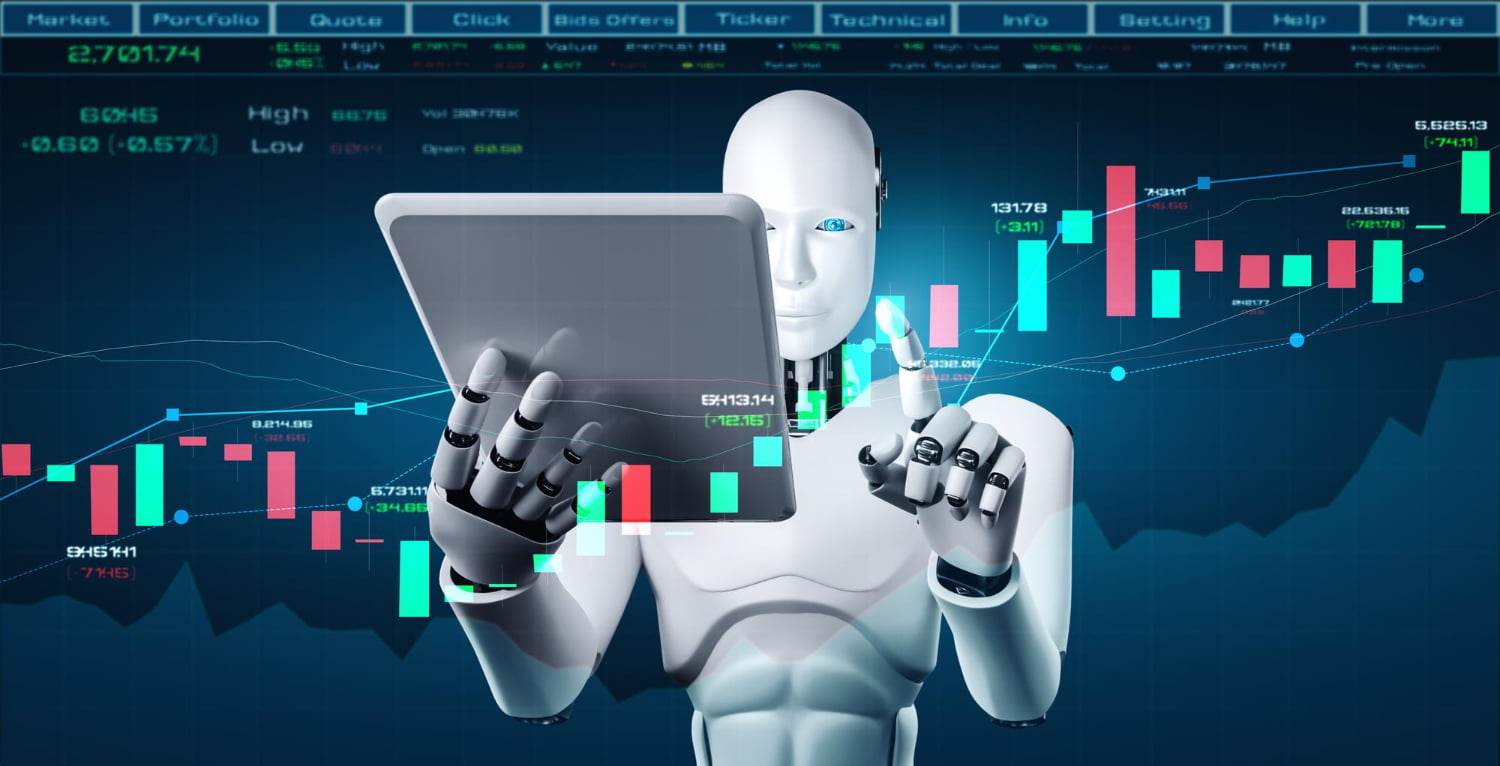
By giving proprietary trading traders a previously unheard-of level of efficiency and precision, artificial intelligence (AI) is transforming the trading sector. AI-based technologies have the potential to revolutionize the trading industry and provide traders with numerous advantages. This article will examine the many applications of AI in trading, as well as its benefits and drawbacks. Due to their capacity to process enormous volumes of data fast and effectively, AI technologies have been widely embraced in the financial sector. Using historical data, current events, and other pertinent information, AI can assess market trends, spot patterns, and make forecasts in the trading world. This can improve traders’ chances of success by enabling them to make better informed judgments. Sentiment analysis is another way AI is utilized in trading. Sentiment analysis is the technique of examining online forums, blogs, and other sources to determine how the general public feels about a certain stock or market. Traders can acquire insights into market sentiment and modify their strategy by utilizing AI to examine this data. Additionally, portfolio management can benefit from AI. By examining past data and spotting trends, AI-powered portfolio management systems can aid traders in optimizing their holdings.
Are algorithmic trading and artificial intelligence the same?
Artificial intelligence (AI) techniques can be used in algorithmic trading, but not all algorithmic trading strategies rely exclusively on AI. Using computer algorithms to carry out trades on the financial markets is known as algorithmic trading. These algorithms can be created to examine market data, spot trends, and forecast future price alterations. Basic rule-based systems are used in certain algorithmic trading techniques, while more sophisticated machine learning or deep learning algorithms are used in others. The system that results from the use of machine learning or deep learning algorithms can be categorized as an instance of AI. These algorithms give the trading system the ability to gain knowledge from past market data and, using that knowledge, forecast future market situations. As a result, algorithmic trading that makes use of deep learning or machine learning algorithms might be seen as an instance of AI. But not all algorithmic trading strategies use them; some may instead rely on more straightforward rule-based systems. The rule based systems are set by the programmer, not AI, and frequently reflect the trader’s intuition. Algo trading follows rules set by a person, whereas AI trading follows rules learnt by ML systems using human-provided data input.
How is AI used to predict stock prices?
Depending on how it is applied, AI’s use in the financial markets may have either a beneficial or negative impact. AI has the potential to increase forecast accuracy, lower expenses, and enhance customer service when implemented properly. AI, however, might result in poor judgment and financial losses for investors if applied improperly. There are numerous potential uses for artificial intelligence in the banking industry, which is still in its infancy. In the Future there will be an increase in the number of AI-based financial products and services as AI technology develops further. Artificial intelligence (AI) is being used in finance in a variety of ways to give traders a competitive advantage. The creation of trading algorithms is one area where AI is in use. These are computer programs that have the ability to automatically buy and sell stocks in accordance with predetermined criteria. Trading professionals can anticipate gaining a sizable advantage over others who are employing conventional techniques by applying AI to create these algorithms. The creation of prediction models is another area of finance where AI is in use. For more accurate forecasts of future stock values, these models can take into account a wide range of variables.
What are the dangers of using AI to the financial sector?
Using artificial intelligence in finance carries a number of dangers, including:
- Black box risk: It might be challenging to comprehend and interpret AI systems. As a result, it could be challenging to see mistakes and gauge the effects of adjustments.
- Risk of overfitting: AI systems can be trained to spot patterns that are exclusive to the training data. When the technique is applied to fresh data, this can result in unreliable predictions.
- Model risk: Complex statistical models that are challenging to comprehend and interpret may be the foundation of AI systems. Because of this, determining how accurate the system’s predictions are can be challenging.
- Data risk: If the data used to train AI systems is not representative of the real world, AI systems may be prejudiced. Predictions could be wrong as a result of this.
- Privacy : AI systems have the potential to gather and handle a lot of personal data, which poses a privacy issue.
Security : AI systems provide a security risk since they can be compromised and utilized for fraud or other nefarious purposes.
Discover why traders trust OFP – take the leap and open your trading account today!






